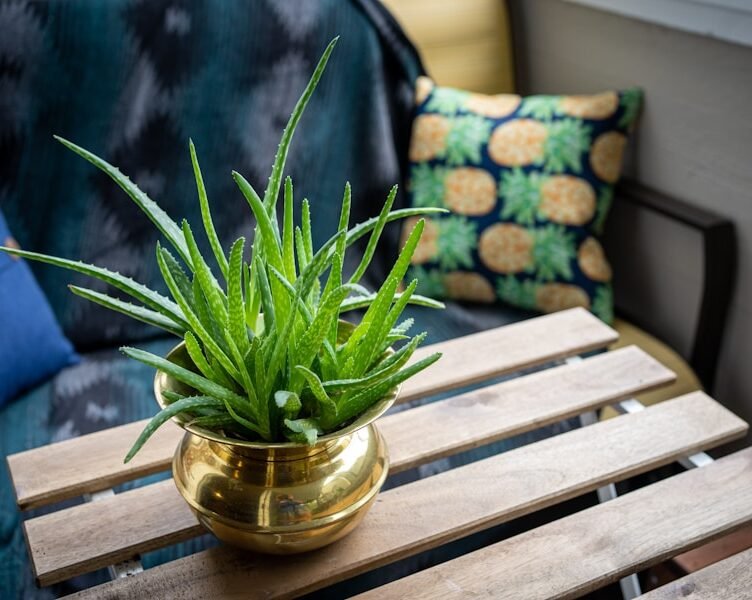Growing medical plants inside a house offers many benefits - find out why!
The benefits of having plants in the home are well-known. Growing green plants has long been recognised as a means of improving air quality, but what about plants that have medicinal properties? What you may not be aware of is that certain plants also have medical characteristics. While these herbs will not be able to completely replace traditional medication, when utilised properly, they can give some benefits.
Growing medical plants indoors is a great way to have easy access to these plants when you need them. One of the most advantageous aspects of growing these plants is that they can contribute to the improvement of your health. An excellent technique to improve the quality of the air in your house is via the use of indoor gardens.
While some of the plants are better suited for outdoor gardens, there are a number of plants that have demonstrated benefits and may be grown in the comfort of one’s own residence.
There are a variety of medicinal plants that can be grown inside and provide numerous benefits. By growing your own medical plants in your home, you may have access to these plants whenever you need them, and you can be confident that the plants are fresh and have not been exposed to chemicals or pesticides during their growth process.
Medical plants provide a variety of advantages that can be obtained by having them in your home.

Here are top 10 benefits of Indoor Medical Plants |Indoor House Plants:
Medical plants can aid in the improvement of air quality by eliminating pollutants from the surrounding environment.
Many medical plants also function as natural air purifiers, eliminating toxic substances from the air such as formaldehyde, benzene, and ammonia.
Reduced stress levels and improved mood are two ways in which indoor plants can aid in the improvement of mental wellbeing.
It is possible to employ medical plants to cure minor injuries and skin disorders, such as aloe vera, in some cases.
Many indoor plants can also be utilised as natural air fresheners, allowing your home to smell fresh and clean after being exposed to them.
Additionally, medical plants can assist you in enhancing your productivity by increasing the amount of oxygen in your home.
When grown in a bedroom, some medical plants, such as the snake plant and spider plant, can eliminate dangerous pollutants from the air while simultaneously releasing oxygen at night, making them an excellent choice for this space.
Medical plants can assist you in getting a better night’s sleep by raising the humidity levels in your house and lowering your stress levels.
House plants can also aid in the purification of drinking water by eliminating harmful pollutants and compounds from the water.
Medical plants are a beautiful way to bring some natural beauty into your house while also providing a variety of health advantages.
It is possible to grow a variety of medical plants inside, and each one has its own set of advantages. Consequently, if you want to enhance your health, why not try your hand at indoor gardening?
Examples of the best medicinal plants that can be cultivated indoors which has its own set of medical traits and benefits:
Following are few examples of the best medicinal plants that can be cultivated indoors, each of which has its own set of medical traits and benefits:
- Aloe Vera
Aloe Vera is a medicinal plant that has been used for thousands of years to treat many ailments. A succulent plant that may be grown indoors, it is called a cactus. Traditionally, aloe vera has been recognized for its medicinal powers. It can be used to treat burns, skin irritations, and a variety of other medical conditions and ailments. A natural healer for wounds, burns, and skin irritations, the gel found inside the leaves of the Aloe Vera plant is a wonderful thing to have around.
- Basil
Basil is a wonderful herb to cultivate indoors to help keep pests out of your house and garden. It also has antibacterial and antifungal properties that are natural. Basil is known for its anti-inflammatory and antioxidant properties. There are a range of health conditions that can be treated with it, including respiratory disorders and digestive problems.
- Bergamot
Bergamot is a medicinal plant that can be grown in a container indoors or outdoors. Bergamot oil is well-known for its antiviral and antibacterial qualities, among other things. It can be used to treat a wide range of health concerns, including the common cold and the flu, according to the manufacturer.
- Chamomile
Chamomile is a therapeutic herb that can be grown in a home or office environment. Anti-inflammatory and antispasmodic qualities are well-known for chamomile’s presence. There are a range of health conditions that it can be used to address, including gastrointestinal disorders and anxiety.
- Echinacea
Echinacea is a therapeutic plant that can be grown in a home or office environment. Echinacea is well-known for its antiviral and antibacterial capabilities, as well as its anti-inflammatory qualities. It can be used to treat a wide range of health concerns, including the common cold and the flu.
- Ginger
Ginger is a medicinal herb that can be grown in a home or office environment. Anti-inflammatory and anti-nausea qualities are well-known for ginger’s benefits. There are a multitude of health concerns that can be treated with this medication. Some of these include nausea, vomiting, and motion sickness.
- Lavender
Planting lavender indoors may be a relaxing and stress-relieving experience, as it helps to promote relaxation and reduce stress. Known for its antispasmodic and relaxing effects, lavender is often used in aromatherapy. It can be used to treat a wide range of health conditions, including anxiety, sleeplessness, and depression, according to the manufacturer.
- Lemon Balm
Lemon Balm is a medicinal plant that can be grown indoors. Antiviral and antibacterial effects of lemon balm are well-known among herbalists. It can be used to treat a wide range of health concerns, including the common cold and the flu.
- Peppermint
Peppermint is a therapeutic plant that can be cultivated in a home or office environment. Its analgesic, anti-inflammatory, and antibacterial characteristics make peppermint a popular choice for herbal teas. It can be used to treat a range of conditions.
- Mint:
Mint is a wonderful plant for indoor gardens since it is pest-repellent and helps to keep insects away. Mint is also an anti-inflammatory and anti-bacterial substance that is found in nature.
FAQs
Conclusions:
In conclusion, growing medical plants within the home has numerous advantages that should not be overlooked, and they can deliver a variety of significant health advantages. They are critical in the provision of first assistance and the treatment of numerous medical problems. The advantage of growing these plants within your home is that you will have easy access when you need them. By cultivating these plants in your home, you can improve your general health and well-being and reduce stress. So, if you are looking for an easy and affordable way to improve your health, consider growing some medical plants inside your home.






